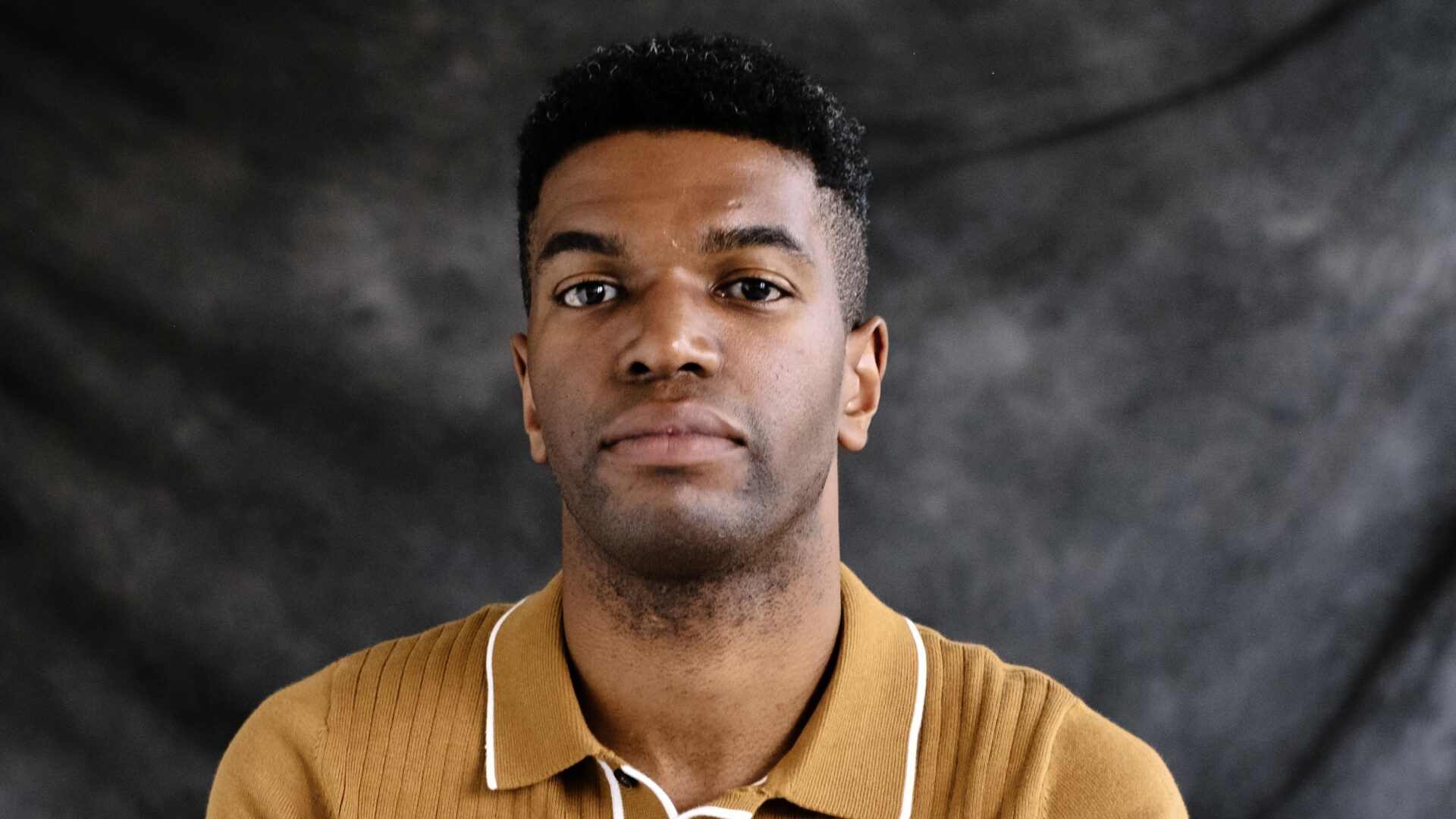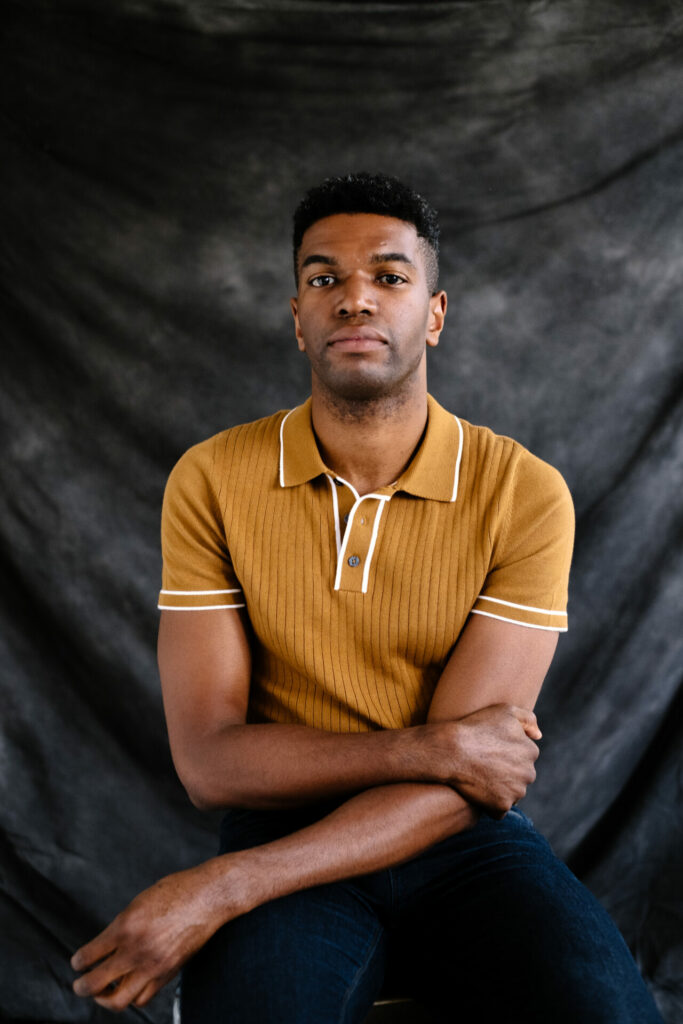Okechukwu Nzelu on the Audible LGBT+ Literature list, writing a queer love story and intersectional representation
"I was aware when I was writing this novel that a lot of LGBT+ people will have experienced some of the darkness that my characters go through." In partnership with Audible
By James Hodge

This Pride month, Audible, a leading provider of spoken word entertainment, has partnered with non-profit organisation, Out on the Page, to release an extensive Pride List of Queer Storytelling, featuring contributions from some of the UK’s most exciting writers from the community.
The project will culminate in a ‘A Celebration of Queer Storytelling’ at London’s iconic Barbican on 27 June, where Audible and Out on the Page will also be hosting, a one-off celebratory panel event. Hosted and featuring just some of the incredible authors involved in the list, tickets are available here, with all proceeds going to Out on the Page.
James Hodge speaks to contributing writer, Okechukwu Nzelu, one of the event panelists, about the challenges of writing his novel, Here Again Now, the joy of writing a queer love story, and the importance of intersectional representation.
Where did the idea for Here Again Now come from?
The theme of masculinity is close to my heart: what that means as a gay man. Growing up gay, you’re told that you’re doing masculinity wrong a lot of the time – the way you talk, the way you walk, the things you like to wear. People are concerned with how you express emotion and how much emotion you allow yourself to show. At its heart, the novel is a queer retelling of the Book of Ruth from the Old Testament. The biblical tale is a story about the concept of chosen family and I wanted to explore that through the lens of male relationships. I found myself writing about these three messed up, complicated Black men who are trying to find a place for themselves together, and how their lives come together in surprising ways.
Why is the idea of family so important to queer literature?
Armistead Maupin talks about the logical family. You have the birth family from who you are born but then you have the family that you build around you. It’s a really queer thing, because so many of us, to whatever extent, do get rejected by the families that were raised. What would that look like for modern men thrown into a difficult situation?
The novel revolves around three central men: Achike, Ekene and Chibuike, and as you highlight, they are flawed and complicated characters. Are they based on men from your own life?
It’s very much not an autobiographical novel, but the themes I explore through their story are really personal: what it means to grow up in a Nigerian family when you’re gay; what it means to be Black and British and to not necessarily feel like you have a place where you belong and you’re accepted completely. The men I have imagined are a vehicle for those ideas.
At the heart of the novel is the relationship between Ekene and Achike. Why was this relationship the start point for your story?
The book asks the question as to whether we choose to love, or if love chooses us. Achike is an idealist who desperately wants Ekene to choose him to be his lover. He throws affection at problems thinking that will solve them. Equally, Ekene is pragmatic and compassionate and he feels like he feels inexplicably tied to Achike, his best friend in the world, especially since Achike is so vulnerable.
The novel begins with a moment of queer joy – a perfect moment for the pair as such. But a devastating event will change their lives, and the novel explores how out of the tragic, other kinds of love can emerge…
You mention in the novel’s acknowledgements that you almost abandoned this novel. What were the challenges you faced in writing it?
Some of the subject matter is pretty bleak, and it was difficult to be in that place for a long time. There are many moments of joy in the novel, but there’s also a lot of sadness and that wasn’t easy to write. But also, the subjects I’m writing about mean a lot to real people – people who have been through similar – I felt a lot of pressure to get it right.
And then there’s the pressure of queer Black representation too…
There aren’t very many representations of Black queer love stories in British novels. There are examples of queer novels which have interracial relationships, but not novels which follow two Black British men. It’s a different perspective having two men who have similar experiences of growing up within a specific culture; who understand each other’s context. Too often, Black characters are exploited in queer literature. In some ways, representing queer Black men through the process of writing felt freeing. I felt a freedom because it was up to me to decide how I was going to write their story.
Redemption is an important theme in the novel – the characters suffer but become better for their struggles. Why is redemption an important force in queer literature?
I was aware when I was writing this novel that a lot of LGBT+ people will have experienced some of the darkness that my characters go through. Not all of us will have found resolution with them. I wanted to write something that said if you don’t have a family that supports you and holds you up, you can find it. I want the reader to know that there is hope – that things can get better.
It’s Pride month. How do you think the novel speaks to the ideas of remembrance and reflection many consider during this time?
I grew up in a conservative family; going to Pride was not an option that I had. I didn’t have that sense of joy and celebration. For me Pride was a reflective time – trying to learn about myself and my heritage. One problematic narrative I learned came out of a lot of African countries was that homosexuality is an import from the West. In fact, there have been many generations of gay men living in Nigeria years ago who were trying to find their own way of existing and loving in a culture which, because of the sort of the hangovers of colonial homophobia, it wasn’t easy for them. They were invisible. In the novel, I wanted to celebrate those unseen men too through the character of Uncle Amos. I think that is a part of pride, right? Telling the stories of those who were voiceless.

Congratulations on being included in the Audible LGBT+ Literature list. How did it feel to see your name amongst so much talent?
It’s such a nice thing to be thought of as somebody who might have something to offer. And I hope that I have done the list justice in my three choices. These are books I wanted to shout about, books that are really important to me.
Why is such an extensive list of queer literature so important during Pride month?
Literature allows us to learn about one another; I think stories are one of the best ways that we can do that. Whether narrative, prose or poetry, I think that the list is so important because it helps us deepen our understanding of who we are and where we’ve come from and experiences that might not always be our own. I think when you’re part of a minority and you are marginalized, it’s very easy to be very short sighted and only think about your own experiences. But actually, progress only comes when we all think about each other, thinking about, our similarities in experience as well as our differences.
Did any of the texts you recommended influence Here Again Now?
The Lives of Great Men by Chika Frankie Adozian is a memoir that explores the writer’s experience of being a gay African man; the affairs that he had; his experiences of queerness in different African countries. It’s another example of a text that gives a voice to an untold perspective that is really talked about. It resonates with my picture of what it means to be gay, of what it means to be Black.
Why is it significant that the list highlights stories from such diverse writers?
I’m really curious about other people, and I think we all should be. The reading experience doesn’t require that we can see ourselves and relate to characters in any direct way. We can empathize and stretch our imaginations and put ourselves into the people’s shoes and just be curious. In the case of my novel, I wanted to represent and to help men who are both Black and queer feel seen. Equally, it’s an opportunity to give insight into how racism is compounded by different experiences such as queerness. I wanted to write something that does justice to often misrepresented Black masculinity – that testifies to the existence of it and sometimes even to celebrate it as well.
What book are you most looking forward to reading from the Audible list?
I cannot overstate how many of these brilliant books I have read, and equally that I want to read. Off the top of my head, I’ve been really excited for Touched by Lauren John Joseph. It’s supposed to be beautifully poetic. But I’d encourage readers to check out the whole list. There really is something for everyone.
